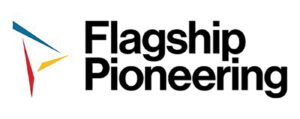
Despite strong financial headwinds, venture capital (VC) firms continue to provide biotech startups with the critical cash they need to develop and scale their technology. Check out five of the most established VCs betting on life sciences companies.
Biotech startups promise potentially groundbreaking solutions to major illnesses such as cancer, COVID-19, heart disease, and rare genetic diseases. However, investing in biotech startups is highly risky and even successful companies require extensive cash inflow to develop therapies and take them to the market—a process that can take more than a decade and cost several billion dollars.
One of the prime sources of capital for biotech startups is VC investors. These funders first emerged in the mid-20th century and focus on targets with high risk and potential for growth, such as those in the tech, deeptech, and biotech sectors. VC investors often exit on their investments, ideally at a profit, once a startup is bought out by a larger company and/or following an initial public offering (IPO).
Following a surge in funding for the biotech industry during the pandemic, a period of valuation “reset” hit public and private biotech markets, according to a report by HSBC Innovation Banking. Although VC firms raised large funds over 2021 and 2022, they are yet to return to previous levels of early-stage investments, the report stated.
VCs around the world are actively investing in biotech startups, but few can rival the size and activity of VCs in the U.S., which houses thriving biotech hubs like Boston and the Biotech Bay Hotbed. Here are five of the most prominent VC firms based on assets under management, investment activity, and successful portfolio companies.
1. Arch Venture Partners
Founded: 1986
Headquarters: Chicago, Illinois
Arch was created to commercialize technology originating from the University of Chicago and the Argonne National Laboratory. This origin is reflected in its name, which is derived from the letters “AR” from Argonne and “CH” from Chicago. The firm adopted its independent VC formatin 1992.
With roughly $9 billion under management as of 2022, Arch focuses on early-stage technology and biotech investments. The investor prefers to fund companies that it co-founds with academic and entrepreneurial experts.
The firm has backed big names such as cell therapy specialist Juno Therapeutics, which is now owned by Bristol Myers Squibb, Neumora Therapeutics, which raised $250 million in an IPO this year, and the DNA sequencing giant Illumina. Illumina recently clashed with regulators when it acquired its former spinoff: the cancer blood test player Grail, which was also part of Arch’s portfolio.
Arch topped up its coffers with $2.98 billion in 2022 when the firm closed its most recent fund, the ARCH Venture Fund XII. Since then, the investor has led rounds including a $60 million Series A closed by small molecule company Gate Bioscience, a $30 million Series A bagged by RNA editing specialist AIRNA, and a $50 million round raised by the molecular glue player Magnet Biomedicine.
2. Flagship Pioneering
Founded: 1999
Headquarters: Cambridge, Massachusetts
Flagship Pioneering was set up as a venture creator with the name NewcoGen, standing for New Company Generation. In 2002, its name changed to Flagship Ventures as the company expanded its horizons to include broader VC activities in addition to internal venture building.
Flagship Pioneering, as it is known today, raised $3.4 billion in 2021 as it expanded its Fund VII, which focuses on companies in healthcare and sustainability. The fundraising rose Flagship’s assets under management to $14.1 billion.
One of Flagship’s greatest claims to fame is setting up the famed mRNA developer Moderna, which made headlines with a $604 million IPO in 2018, one of the biggest of its kind in biotech. During the pandemic, Moderna commercialized a vaccine to protect against COVID-19 far faster than traditional development programs.
Many others in Flagship Pioneering’s portfolio have completed IPOs. A standout example is a $675 million offering by the cell and gene therapy player Sana Biotechnology in 2021. Other portfolio companies have also been acquired, like Acceleron Pharma, which was taken over by Merck (known as MSD outside the U.S. and Canada) for $11.5 billion in 2021, and Sigilon Therapeutics, which was snapped up by Eli Lilly and Company for a reported $309.6 million this year.
Pfizer tapped into Flagship Pioneering’s startup network earlier this year by co-financing a $100 million program to develop ten assets. According to the deal terms, Pfizer will have an option to acquire the development programs while Flagship Pioneering and its companies will receive up to $700 million in milestone and royalty payments for successful programs.
Flagship Pioneering’s most recent investments are a $140 million Series B round closed by cancer screening firm Harbinger Health and a $273 million Series C round bagged by antibody drug developer Generate Biomedicines.
3. OrbiMed
Founded: 1989
Headquarters: New York City, New York
OrbiMed originated as a money-management and research firm in 1989 and invests in sectors like biopharmaceuticals, medical devices, diagnostics, and healthcare services.
The company invests following strategies like private equity, public equity, and private credit. It made its first VC investment in 1993 and launched its first dedicated VC fund in 2000.
Today, OrbiMed is one of the biggest healthcare-focused investment firms in the world, with more than $17 billion in assets under management. Last month, the company added $4.3 billion to the bank to set up funds like the OrbiMed Private Investments IX, OrbiMed Asia Partners V, and OrbiMed Royalty & Credit Opportunities IV.
Some of OrbiMed’s most noteworthy portfolio companies are liquid biopsy developer Guardant Health, which raised $273.1 million in an IPO in 2018, and the cell-free DNA testing company Natera, which took home $180 million in an IPO in 2015.
Many of OrbiMed’s investments have netted M&A exits, like the $4.1 billion acquisition of precision oncology player Turning Point Therapeutics by Bristol Myers Squibb in 2022 and this year’s takeover of Decibel Therapeutics by Regeneron. Decibel was valued at up to $213 million, provided development milestones of its hearing loss gene therapy are reached following the takeover.
As OrbiMed expanded this year, it opened new headquarters in London, U.K. The company has also invested in financing rounds, with a $175 million Series B closed by small molecule developer Terremoto Biosciences and a $92 million Series A round raised by precision medicine player Triveni Bio.
4. RA Capital Management
Founded: 2002
Headquarters: Boston, Massachusetts
RA Capital Management’s name stems from the initials of Richard Aldrich, who left Vertex Pharmaceuticals to co-found the VC investment firm.
With almost $10 billion in assets under management, RA Capital focuses on founding and investing in companies developing drugs, medical devices, diagnostics, services, and research tools. Investments range from seed funding to IPO and follow-on financings. The firm maps target markets and identifies breakthrough opportunities using a proprietary tool called TechAtlas.
One of RA Capital’s portfolio successes is the Flagship Pioneering-founded Moderna. Another is the commercial-stage gene therapy company Orchard Therapeutics, which raised $225 million in a Nasdaq IPO in 2018 and was acquired earlier this year for around $477.6 million by Japanese firm Kyowa Kirin.
Other M&A deals of RA Capital-backed firms are the takeover of blood disorders specialist Forma Therapeutics by Novo Nordisk for $1.1 billion in 2022, and Eli Lilly’s acquisition of gene therapy company Prevail Therapeutics for approximately $1 billion in 2020.
RA Capital closed its third fund, RA Capital Nexus Fund III, in 2021 with $880 million to invest in private companies. Its recent forays into venture rounds include a $105 million Series C round raised by antibody drug developer Alentis Therapeutics, and an $85 million Series A round for the DNA-based medicines firm Rampart Bioscience.
5. Versant Ventures
Founded: 1999
Headquarters: San Francisco, California
Versant uses a mixture of debt, early stage, late stage, and private equity strategies to nurture biotech companies that are discovering and developing novel therapeutics. The firm also runs so-called Discovery Engines, which are in-house teams of scientists working with academic founders to launch new biotech companies from scratch.
Versant manages approximately $4.2 billion in assets and raised $950 million in 2021 to feed three funds: its primary global biotech fund Versant Venture Capital VIII, the booster fund Versant Voyageurs II, and the late-stage fund Versant Vantage II.
Versant has backed big industry names like the gene editing-focused CRISPR Therapeutics, pharma company Jazz Pharmaceuticals, and immunotherapy developer Gritstone bio.
One of its major portfolio successes was the radiopharmaceutical player RayzeBio, which closed a $358 million IPO earlier this year. Versant also had stakes in Monte Rosa Therapeutics, a molecular glue drug developer that raised $222.3 million in an IPO in 2021 and the medical device company Inari Medical, which bagged $179.2 million in an IPO in 2020. Versant’s gene therapy-focused portfolio company Audentes was taken over by Astellas in 2019 for an impressive $3 billion.
In recent months, Versant joined Arch in backing Gate Bioscience’s Series A round. It contributed to a $35 million Series B round raised by biologics firm Tentarix Biotherapeutics and a $60 million Series A round to finance oncology company Nexo Therapeutics.
Jonathan Smith is a freelance science journalist based in the U.K. and Spain. He previously worked in Berlin as reporter and news editor at Labiotech, a website covering the biotech industry. Prior to this, he completed a PhD in behavioral neurobiology at the University of Leicester and freelanced for the U.K. organizations Research Media and Society of Experimental Biology. He has also written for medwireNews, Biopharma Reporter and Outsourcing Pharma.


















